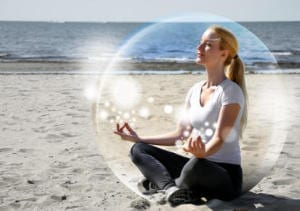Day Dreaming Good for You?
As each day passes, the pace of life seems to accelerate — demands on productivity continue ever upward and there is hardly ever a moment when we aren’t, in some way, in touch with our family, friends, or coworkers. While moments for reflection may be hard to come by, a new article suggests that the long-lost art of introspection — even daydreaming — may be an increasingly valuable part of life.
In the article, published in the July issue of Perspectives on Psychological Science, a journal of the Association for Psychological Science, psychological scientist Mary Helen Immordino-Yang and colleagues survey the existing scientific literature from neuroscience and psychological science, exploring what it means when our brains are ‘at rest.’
In recent years, researchers have explored the idea of rest by looking at the so-called ‘default mode’ network of the brain, a network that is noticeably active when we are resting and focused inward. Findings from these studies suggest that individual differences in brain activity during rest are correlated with components of socioemotional functioning, such as self-awareness and moral judgment, as well as different aspects of learning and memory. Immordino-Yang and her colleagues believe that research on the brain at rest can yield important insights into the importance of reflection and quiet time for learning.
“We focus on the outside world in education and don’t look much at inwardly focused reflective skills and attentions, but inward focus impacts the way we build memories, make meaning and transfer that learning into new contexts,” says Immordino-Yang, a professor of education, psychology and neuroscience at the University of Southern California. “What are we doing in schools to support kids turning inward?”
Accumulated research suggests that the networks that underlie a focus inward versus outward likely are interdependent, and our ability to regulate and move between them probably improves with maturity and practice. While outward attention is essential for carrying out tasks and learning from classroom lessons, for example, the reflection and consolidation that may accompany mind wandering is equally important, fostering healthy development and learning in the longer term.
“Balance is needed between outward and inward attention, since time spent mind wandering, reflecting and imagining may also improve the quality of outward attention that kids can sustain,” says Immordino-Yang.
via Science Daily
The Latest Streaming News: Well-Being updated minute-by-minute









